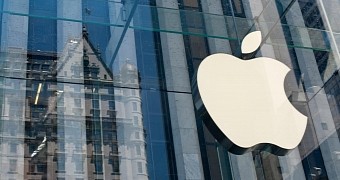The FBI requested Apple to unlock the iPhone of Jun Feng, a drug dealer who had already pleaded guilty but who suddenly forgot the passcode to his phone, but in a formal filing today, the company refuses to do it and explains why the bureau can’t get its assistance.
Specifically, Apple explained in court documents that the company refuses to hack the iPhone 5S running iOS 7 because the FBI hasn’t yet used all the other methods of accessing data on the phone. In other words, FBI came to Apple first, without sticking with the standard procedure of extracting data from all the other involved parties.
Apple’s statements
"The government has failed to show that it is has exhausted other potential repositories of the information it wants from Feng’s iPhone," Apple explains.
“The government says that it seeks to learn Feng’s customers and sources from the data on his iPhone, DE 30 at 8, but it has not shown, for example, whether it attempted to get this information by subpoenaing relevant records from Feng’s cell-phone service provider, or by obtaining a warrant under the [Stored Communications Act], 18 U.S.C. § 2703, for the contents of any accounts Feng owns, such as an Internet-based email service or a social-media service, or for text messages sent to and from his phone.”
“Nor did the government seek an SCA order to obtain other potentially useful information from Apple. These records or others may obviate the purported need for Apple’s assistance to bypass Feng’s passcode.”
In the San Bernardino iPhone case, the FBI turned to a group of hackers who allegedly used an undisclosed vulnerability in iOS in order to unlock the device and access the data.
But according to the FBI, that specific hack only worked on the San Bernardino iPhone, and that’s why the agency now needs Apple’s assistance to break into this new device, which it believes contains more information relevant to the investigation.
For the moment, Apple is opposing any demand to unlock iPhones for the FBI, so it’s very clear that the San Bernardino case was just the beginning of a longer dispute that could take more than anyone expected unless clear regulations are issued in this regard.

 14 DAY TRIAL //
14 DAY TRIAL //